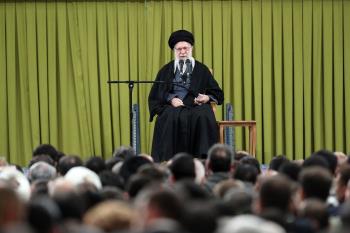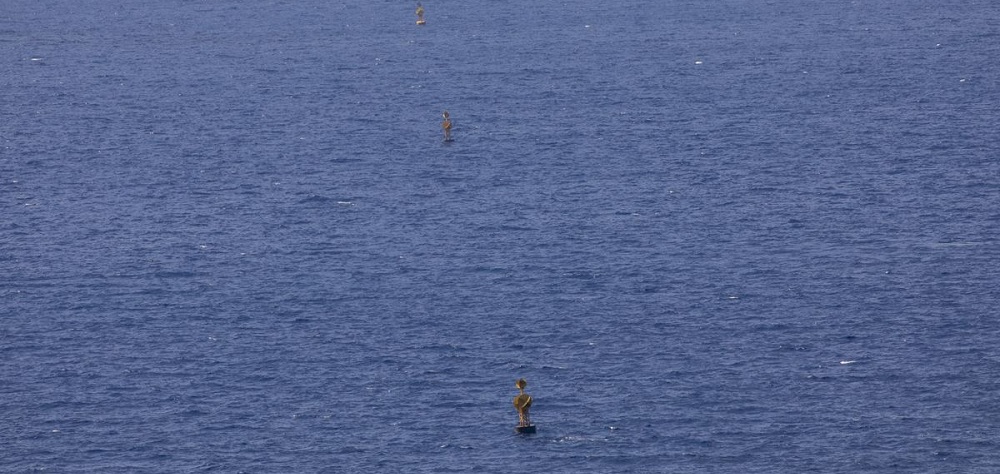Alwaght- After three sessions of resultless negotiations between Lebanese and Israeli delegations over their sea borders, recent a barb clash between the Lebanese and Israeli officials signals an impasse the talks are facing.
The initiator of the clash was the Israeli Energy Minister Yuval Steinitz who in a string of tweets indirectly threatened the Lebanese side that Beirut’s insistence on its stances in the dialogue will deprive it from exploring and producing gas from the Mediterranean Sea. He also blamed Lebanon for the failure to get an outcome from the negotiation, adding that Beirut has shifted its stances seven times and warning that Lebanon’s inflexibility will kill the negotiations.
“Lebanon has changed its stance on its maritime border with Israel seven times,” he tweeted, adding: “Its current position contradicts not only its previous one, but also Lebanon’s stance on its maritime border with Syria, which takes into account Lebanese islands close to the border.”
President Michel Aoun of Lebanon responded to the Twitter posts, calling them “baseless” and saying Lebanese posture was stable.
A presidential statement said that Aoun instructed his negotiators that the borderline “should be based on the line that departs on land from the point of Ras Naqoura”, according to the 1923 Newcomb-Paula agreement. The fourth round of the negotiations is slated to start in about two weeks.
Lebanon and the Israeli regime have no agreed-upon land borders and only when the Israeli forces retreated from southern Lebanon in 2000, a ceasefire was signed between them along what is recognized as Blue Line, an area drawn by the UN and where UN peacekeepers patrol to prevent clashes between the two sides.
The same land border uncertainly also extends to the sea borders, even influencing it. Drawing the land border in Ras Naqoura is the main sticking point. Settling this simple dispute in the land means determining about 17 kilometers of territorial water borders.
Currently, the Israeli regime pumps gas from gas fields on which Lebanon places claims as located in its territorial waters. Lebanon, facing the toughest economic crisis since the civil war of 1975 to 1990 and running into an impasse in its application for loans from foreign creditors, is hopeful to assuage part of its economic predicament by producing and selling gas from the disputed fields.
Laury Haytayan, a Lebanese oil and gas expert, believes that Aoun's tweet means that Lebanon is now demanding 1400 square kilometers of the sea in the south that covers part of the Israeli Karish gas field.
Israeli strategy: Negotiations for negotiations
While Lebanon insists on the end of the border dispute and the Israeli sea violations as soon as possible, Tel Aviv favors negotiating for more negotiations and waste of time so that it can take advantage of Beirut’s tough economic times to press it into making concessions and at the same time use the talks as an achievement to move out of the historical isolation and buy regional legitimacy.
A Twitter post by the Israeli energy minister can bear witness to this. The post called for upgrading the negotiations to high-level political officials.
“I am pleased to inform you that I have enjoyed the dialogue that has been taking place between us in recent days on Twitter about the maritime border negotiations. But unfortunately, it seems that you do not know all the facts about this matter, because the Lebanese side has changed its positions on the maritime borders many times during the last 15 years,” Steinitz wrote on Twitter, adding: “I am of the belief that if we were able to meet face to face in one of the European countries in order to conduct open or secret negotiations, we would have a good opportunity to resolve our differences over the maritime borders once and for all. In doing so, we will contribute to strengthening the economic future and well-being of the two peoples.”
The Israeli delegation is headed by the Director-General of Energy Ministry Udi Adiri and the Lebanese side is headed by Brigadier General Bassam Yassin, the deputy chief of staff for operations of armed forces. A call for high-level talks while the normalization is condemned by a large part of the Muslim and Arab public, is an effort by Tel Aviv officials to push the thaw out of an atmosphere of stagnation.
The Israelis are well aware that approval of the Israeli suggestion can ignite a new crisis inside the Lebanese government, as a significant part of the government— mainly Hezbollah and its allies— is opposed to such a move.
Another factor displaying the Israeli strategy of buying time through excess is Steinitz's claims that match no logic, since despite the Israeli propaganda, Lebanon has not changed its position on the maritime border in the south.
Sources following the negotiations closely confirmed that Lebanon has only left to the UN a single borderline, dubbed Line 23. Actually, the Israeli allegations about the Lebanese stance shifts cannot be constructive and only exhibit Tel Aviv's effort to push the talks to a deadlock as Lebanon stands firm on its right.



























